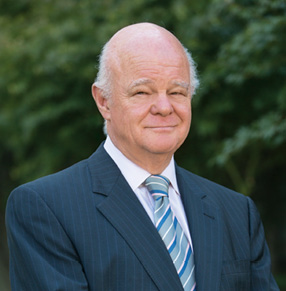
Director’s message
Health-care costs in the United States consume a staggering 18 percent of the nation’s gross domestic product, and the United States spends more on health care per capita than any other industrialized country. Critics often cite academic medical centers, in particular, as excessive consumers of health-care dollars.
It is fair to ask whether the public is getting value for the expense. Is there a legitimate return on the investment in academic medical centers, generally, and comprehensive cancer centers like UC Davis, specifically?
I argue that the costs associated with these NCI-designated cancer centers are justified. The investments made here help create new knowledge about a disease we do not yet fully understand. This knowledge can only evolve from basic scientific investigation, and the researchers and clinicians who work for a comprehensive cancer center are driven to ensure they bring this knowledge to their patients, improving survival for them and others affected by cancer.
This issue of Synthesis explores many of the ways we are using these investments to break barriers to beat cancer, and bring value to our patients.
The investments made in the education of our cancer researchers and clinicians, in technologies that help us find tumors sooner, in our laboratories hunting for new drug targets, in clinical trials of innovative treatments, and in the community-based work to eliminate health disparities bring value to every patient.
These investments fund the creation of new knowledge, which translates into better care and better cancer outcomes — not just for the people we treat, but for anyone counting on a determined search for advanced cancer cures.
Without the resources of a National Cancer Institute-designated comprehensive cancer center like UC Davis, these advances simply won’t happen.
For example, we have been awarded three major grants to conduct clinical trials of novel therapies at phases I, II and III, and we lead two of the three trials nationally. These trials not only give our patients at every stage of their disease more treatment options, but advance the field of drug development generally, which benefits all cancer patients.
Similarly, because our clinicians also conduct research, our patients immediately benefit from the findings that continue to improve how we treat each individual cancer. A recent example: UC Davis thoracic surgeon Tom Cooke recognized that many late-stage lung cancer patients do not get surgical biopsies, which are usually necessary to obtain sufficient tumor tissue for genetic testing. The testing allows scientists to determine if the patient would benefit from an available targeted drug treatment. Cooke studied the problem and found that for carefully selected patients, surgical biopsy is safe, after all. His findings will change the game for late-stage lung cancer patients in search of new treatment options.
Value in cancer care also is evident in the improved survival rates of patients at our cancer center. The American College of Surgeons’ Commission on Cancer, which accredits and sets standards for cancer centers across the country, released outcomes data for all 1,500 accredited cancer centers. The recent data demonstrate that UC Davis Comprehensive Cancer Center had dramatically better survival rates in several types of cancer, when compared with all other accredited centers.
For solid organ cancers (excluding lymphoma, leukemia, brain, bone and eye tumors), five-year survival rates of stage IV cancer patients treated at UC Davis were nearly double that of all other ranked programs. In prostate cancer, specifically, 58.6 percent of stage IV patients at UC Davis were alive after five years, compared with 37.6 percent of stage IV patients at other centers.
Our hard work on behalf of patients and the larger community has not gone without notice. Becker’s Hospital Review just listed ours as one of 100 hospitals and health systems with “great oncology programs.” U.S. News and World Report recently ranked us 34th among 50 of the best hospitals nationally for cancer care.
Of course we don’t rest on our laurels. There is much to do in the ongoing challenge that is cancer. Rest assured that we will not put down our tools until the job is done and every life we touch experiences a full return on the investment.
Enjoy this issue of Synthesis.

